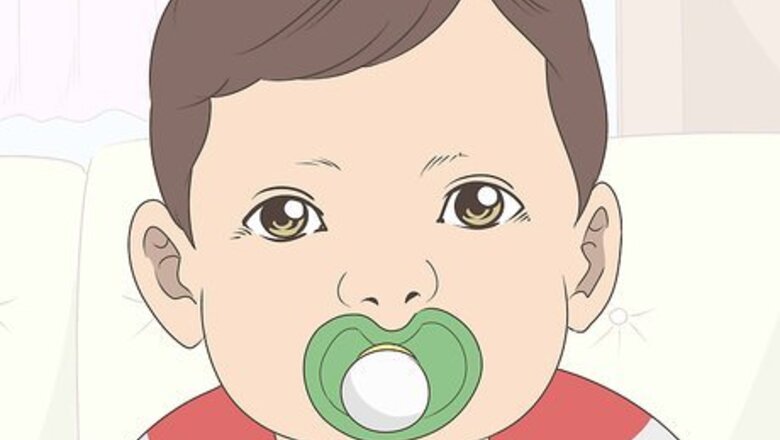
views
- Give your baby a pacifier or feed them to help calm their hiccups. Or, pat and rub them on their backs.
- Baby hiccups are caused by their diaphragm contracting and spasming. This is often caused by your baby eating too much, too quickly.
- To prevent hiccups, make sure your baby is properly latched while feeding and hold them upright for 30 minutes after they eat.
Stopping Baby Hiccups
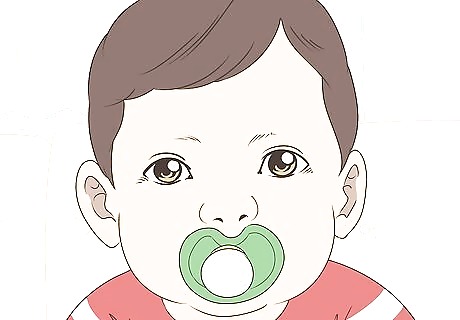
Give your baby a pacifier. If your baby’s hiccups last more than a few minutes, offer them a pacifier. Sucking on the pacifier can soothe and relax your little one’s diaphragm, which is likely causing their hiccups. Don’t worry if your baby’s hiccups don’t stop immediately. Babies aren’t typically bothered by their hiccups.
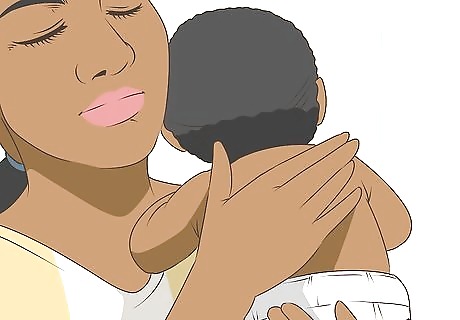
Pat or rub your baby on the back, or rock them. Soft, relaxing motions can soothe your baby and help their hiccups stop faster. Just gently pat them on the back or rub their back in a slow, circular motion. Or, lightly bounce your little one or sway while holding them.
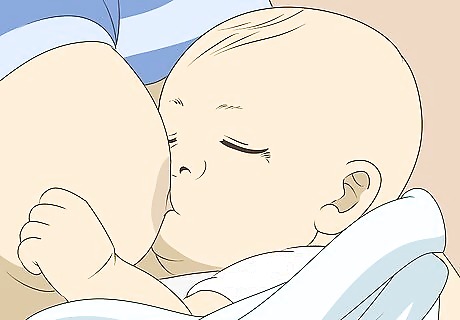
Breastfeed or bottle-feed your baby. Sometimes, feeding your infant can stop their hiccups. The latching, sucking, and drinking motions can help prevent them from hiccuping at the same time and calm down their diaphragm. Don't worry if your baby keeps hiccuping while feeding, as this is fairly common.
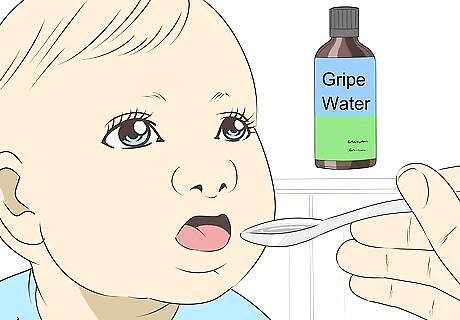
Give your baby gripe water. Gripe water is an over-the-counter herbal remedy that is commonly used to soothe colicky and gassy babies. Because gripe water can relieve your baby’s upset tummy, it might also help stop their hiccups. Just follow the directions on the gripe water’s packaging to feed your baby the correct dosage. There’s no scientific evidence supporting gripe water’s effectiveness. However, most doctors consider it a low-risk remedy that’s safe to relieve hiccups.
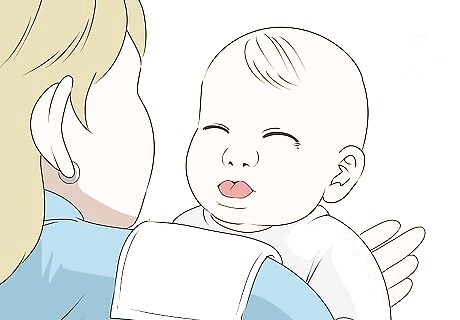
Burp your baby. Burping your baby helps release trapped gas in their tummy, which can also help relieve their hiccups. If your baby gets the hiccups while they're eating, take a short break to hold them upright against your shoulder and gently pat their back. Or, sit your baby on your lap and rub or pat their back. If you’re nursing: Take a burp break when you switch sides. If you’re bottle feeding: Stop to burp after your baby drinks 2-3 oz (59-89 ml) of milk. Burping your baby gives them a chance to digest the milk, which reduces the chances that they overfeed, swallow air, and start hiccuping.
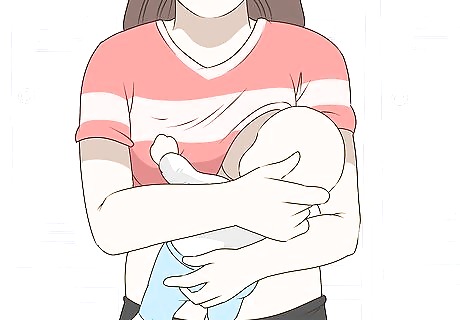
Sit your baby upright if they have hiccups while eating. Your baby's stomach can get distended from swallowing too much air as they feed. While this isn't harmful to your baby, it can cause hiccups. If you’re feeding your baby, just shift them to a more upright position, like at a 30 to 45° angle. This prevents more air from settling in their stomach that causes their diaphragm to contract. Play around with the position until you find what's comfortable for both you and your baby. You might feed them while standing or with your feeding arm stacked on a pile of pillows.
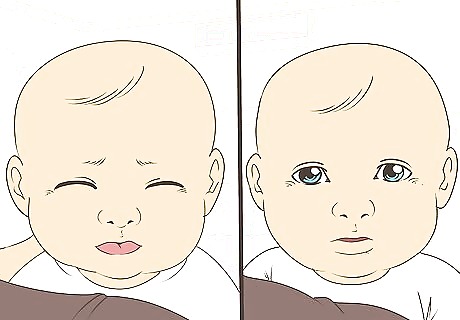
Wait a few minutes for the hiccups to stop. While your little one’s hiccups can make you nervous, know that they don’t really bother babies. Hiccups usually go away after 5 to 10 minutes, so most doctors simply recommend waiting them out. Hiccups are completely normal in newborns and babies. In fact, it’s common for babies to hiccup in the womb before they’re even born!
What causes baby hiccups?
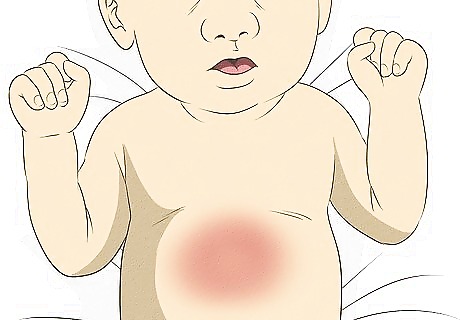
Baby hiccups are caused by diaphragm contractions. Like adult hiccups, your baby’s hiccups occur due to their diaphragm spasming, which is the muscle that rests below their lungs. When your baby’s stomach expands and rubs against their diaphragm, it contracts and causes their vocal cords to shut and make a “Hic” sound. There’s no singular cause for hiccups, but they often occur when: Your baby eats too much. Your baby eats too quickly. Your baby inhales a lot of air.
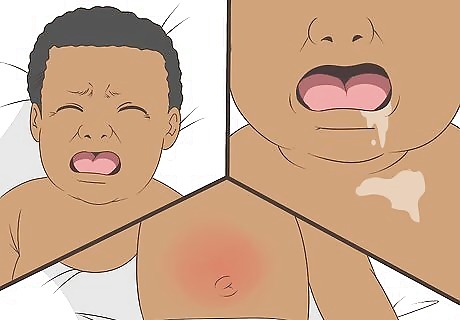
In some cases, hiccups are a symptom of gastroesophageal reflux. Gastroesophageal reflux (GER, or acid reflux) is a condition in infants where they regurgitate, or spit up, contents from their stomach into their esophagus. Your baby’s hiccups might be a sign of GER if they’re also showing symptoms like: Coughing Crying and irritability Spitting up frequently Arching their back during feeding GER is very common and doesn’t require treatment; it usually stops by the time your baby is 12 to 14 months old. GERD is a more severe form of GER that typically shows up as frequent GER symptoms that also cause complications. Visit your pediatrician if your baby refuses to feed or has poor weight gain, frequent coughing, pneumonia, irritability, trouble sleeping, or green vomit.
Preventing Baby Hiccups
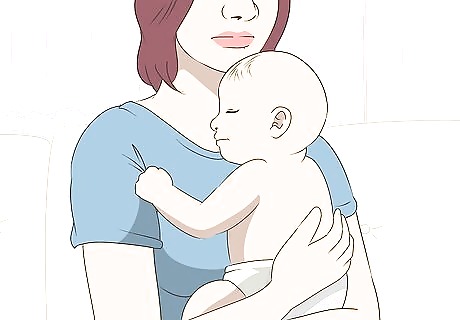
Hold your baby upright after feeding them. Keeping your baby in a vertical, upright position for 30 minutes after they feed can help them digest their milk and prevent their diaphragm from getting irritated. Just sit and relax while you hold your little one upright or walk around with them.
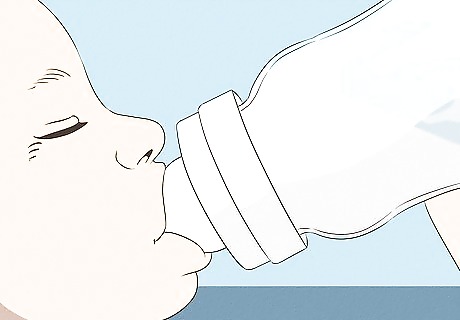
Feed your baby smaller amounts of milk more frequently. Your baby might get hiccups when they drink too much, too quickly. Adjusting your feeding schedule so your baby gets less milk at a time but feeds more frequently can help prevent them from swallowing too much air and distending their stomach. Feeding your baby before they get super hungry can keep them calm and prevent hiccups. When they’re fussy, they might overfeed or swallow more air.
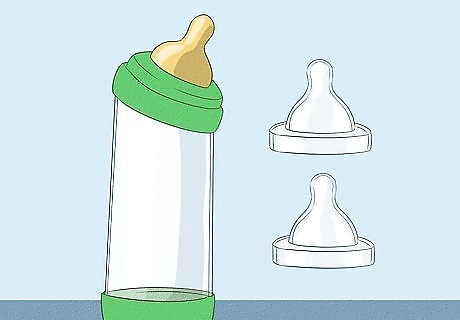
Remove excess air from your bottles. If you feed your baby formula, take some time before feedings to keep air out of your baby’s bottles. Trapped air can end up in your babe’s tummy, causing their hiccups. Just gently stir or swirl the formula as you mix it and then let it sit for a few minutes to reduce bubbles. Then, tilt the bottle horizontally so only formula fills the nipple. Use an angle-neck bottle and slow-flow nipples to prevent air buildup in your bottles, too.
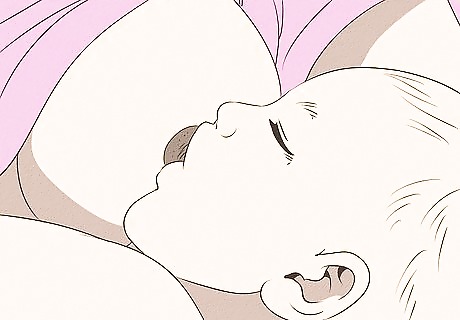
Ensure your baby is properly latched when feeding them. If you nurse your baby, an improper latch can cause them to swallow a lot of air as they feed. To achieve a good latch, make sure your baby’s mouth is wide open and makes full contact with your nipple and areola. If your baby isn’t making a good latch: Pull back and brush their upper lip with your nipple. Wait for their mouth to open wide and their tongue to drop down. Aim your nipple towards your baby’s upper lip. Gently pull their upper and bottom lip to get more contact.




















Comments
0 comment